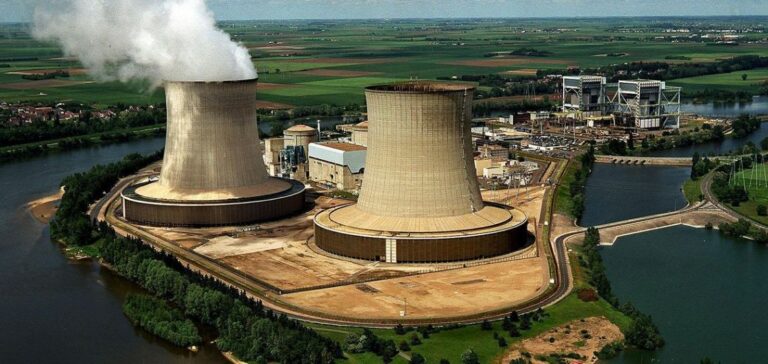Two other nuclear reactors will not be able to restart before the end of this winter, and six others will have to be shut down in 2023 for repairs related to corrosion problems, EDF has learned in recent days.
EDF announced in an information note published Friday on its website that it has decided to systematically replace the pipes of the category of reactors most exposed to these risks of corrosion, on emergency pipes used to cool the reactor in case of emergency.
These reactors will have to be shut down for the duration of the work.
On these six reactors of 1,300 megawatts (MW), “as we are pretty sure to find things (traces of corrosion, editor’s note), we go directly to work,” explained a spokesman for EDF to AFP.
The winter of 2022/2023 was already the most tense in terms of electricity supply, with a nuclear fleet concerned by numerous maintenance operations but also affected by these corrosion phenomena discovered or suspected on a growing number of plants.
EDF has never produced so little nuclear electricity in its history, forcing France to import record volumes of electricity from neighboring countries.
As of Friday, 40 of the 56 nuclear reactors in France were operating.
After the new repair announcements, the Golfech 1 (Tarn-et-Garonne) and Penly 2 (Seine-Maritime) reactors will not be able to restart until June 11, whereas they were supposed to return to service on February 18 and January 29, respectively, which would have covered the end of the winter.
EDF had already announced two other delays on Friday, including the return to service of Penly 1 on March 20, two months later than planned, for the same reason: the preventive replacement of a portion of piping threatened by cracks.
Automatic repairs
“The analyses carried out for more than a year have enabled EDF to identify the reactors whose safety injection circuit lines are the most sensitive to the development of the stress corrosion phenomenon” (SCC), EDF said in its information note: “these are the 16 most recent reactors”.
Four “N4” reactors are Civaux 1 and 2, on which work has been completed, and Chooz 1 and 2, where work is in progress.
Remain 12 reactors of 1,300 MW called “P’4”, on which EDF decided “preventive” repairs, without even passing through the stage of examination, which implies a shutdown of 160 days, the spokesman explained to AFP.
Of these twelve reactors, one has already been repaired and the other five are in operation.
This leaves six to be repaired automatically in 2023 (Belleville 1, Belleville 2, Cattenom 2, Golfech 2, Nogent 1, Nogent 2), where EDF had previously only planned to carry out initial inspections.
“EDF has decided today to adapt its treatment strategy for all 1300-P’4 reactors. This strategy aims to address the CCS issue for all 1300-P’4 reactors by the end of 2023″, the group explains.
According to the spokesman, there will be no overall production “lower than expected” so far, the smaller 900 MW reactors, the bulk of the fleet, being ultimately “probably less affected” by this problem.
But EDF’s announced schedules for the restart of its reactors have continued to be delayed in 2022, which augurs a still complicated winter of 2023/2024.
In the immediate future, the manager of high-voltage lines, RTE, will update its forecasts for this winter on Tuesday, in particular for the month of January, where the risk of tensions had been considered high at the previous point, on November 18.






















